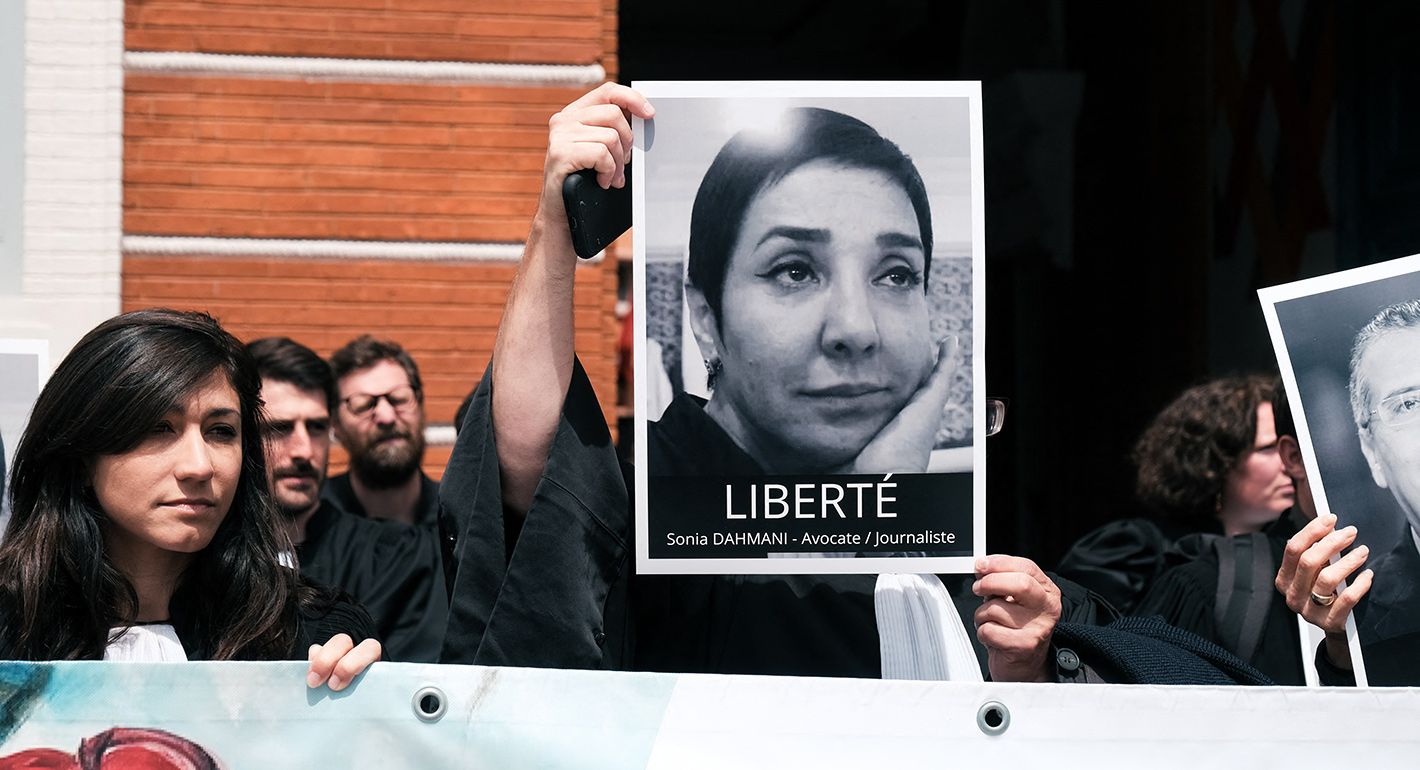On May 11, 2024, masked Tunisian police officers raided the Bar Association’s Lawyers’ House and arrested prominent lawyer Sonia Dahmani. Dahmani was arrested for a comment she had made on live television in which she questioned President Qaïs Saied’s anti-migrant policy and his claim that Sub-Saharan migrants—whom studies show generally have their sights set on Europe—wish to remain in Tunisia. This was one in a long list of repressive measures carried out by Saied’s regime since he took power in 2021. Such measures have left many people, particularly those outside Tunisia, wondering how the country’s much-lauded transition to democracy has degenerated into authoritarian dictatorship.
However, the answer has been clear to anyone paying attention. The democratic transition in Tunisia never succeeded. In fact, it barely got off the ground. Since 2011, when popular demonstrations ousted President Zein al-Abedin ben Ali, successive governments with differing political outlooks have promised more job opportunities for the youth and a politically stable future. In reality, gross domestic product (GDP) growth fell from 3.5 percent between 2000 and 2010 to 1.7 percent between 2011 and 2019. As economic productivity declined, job opportunities and living conditions for the youth in particular slowed quite drastically. In 2005, 13.3 percent of the youth was unemployed; by December 2013, this figure had increased to 31.9 percent. Tunisia’s economy continued to suffer under then-president Beji Caïd Essebsi’s governing coalition with the Ennahda Movement, with the country’s external debt reaching $30.1 billion in 2016. The Islamist Ennahda Movement, which was elected primarily for its prioritization of economic prosperity, turned out to be spreading empty promises to its fellow Tunisians.
The outlook was a great deal better in 2011. In January of that year, millions of Tunisians took to the streets of Tunis, protesting high unemployment, poor living conditions, and the networks of corruption and political repression beholden to Ben Ali, who had ruled the country since 1987. I was ten years old and sitting on my father’s shoulders at one such demonstration. Clutching the Tunisian flag in my sweaty hands, I chanted “Bread, water, and no Ben Ali” in Arabic along with the other demonstrators—and prayed that the police would refrain from firing tear gas at us. Later that month, Ben Ali fled the country and his regime crumbled.
The Tunisian revolution was followed by a decade of democratization attempts, all of which resulted in economic crises and political instability. Abroad, however, people continued to view the country through rose-colored spectacles. Tunisia was praised for its first pluralistic election, which was held in October 2011. The parliamentary and presidential elections of 2014 strengthened Tunisia’s democratic façade. And in 2015, the Tunisian National Dialogue Quartet, a coalition of four civil society organizations that played a pioneering role in the formation of the 2014 constitution, received the Nobel Peace Prize. Western media and politicians continued to praise Tunisia as a beacon of democracy in the region.
Yet how does Tunisia qualify as a democracy when the economic demands of millions are unmet and even disregarded? The answer to this question is that the “democracy” of Ennahda was funded by neoliberal loan systems. The loans in question came from the International Monetary Fund, the European Union, the U.S. government, and the World Bank Group. Instead of using the money to establish a welfare system that targeted marginalized regions, thereby alleviating the dismal economic situation Tunisians have railed against since the revolution, Tunisia’s class of elites invested it in their own enterprises. The elite included former Ben Ali cronies who had remade themselves as democrats, as well as newly ascendant Islamists. The Tunisian middle and working classes watched as their revolution was hijacked by this elite and its Western neoliberal backers. The gap between the socioeconomic classes continued to widen. Hope turned into despair, resulting in nostalgia for the time of president Habib Bourguiba’s socialist dictatorship of 1956–1987.
Indeed, disillusioned Tunisians began to entertain the notion that democracy simply could not give them what they had sought in 2011. Saied took avantage of this. In 2022, he drafted a new constitution. Among other anti-democratic features, it included Decree Law No. 54, which allowed the state to imprison for five years those who spread misinformation and punish them with a fine of 50,000 Tunisian dinars (just under $16,200). Since then, this and similar laws have been used against people who dissent from the official line. Freedom of expression has shrunk, leading to a situation in which the arrest of opposition figures has become extremely frequent.
Today, Tunisia is on the verge of an economic meltdown. Yet many Tunisians no longer support the political framework of a democracy. They have lost faith that a democratic system is preferable, much less needed, for achieving economic prosperity. However, instead of blaming Tunisians for supporting a dictatorship in order to receive a modicum of economic stability stability, Western analysts would be well-advised to promote democracy for what it truly is: the amplification of oppressed voices. If democracy is not wedded to a healthy economy, it will have few takers. Democracy ignores its own principles when it supports only what aligns with Western neoliberal politics and stifles the voices of the majority. Ultimately, Tunisia’s 2011 revolution will remain unfinished until a true democracy is established, one that first and foremost heeds Tunisian citizens’ economic demands.






